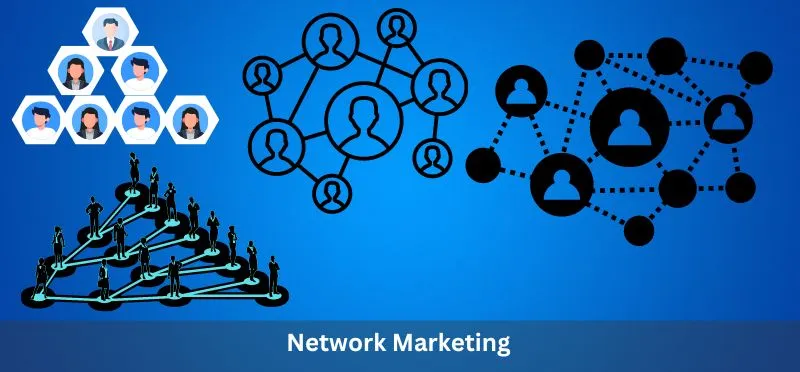These days, marketing has advanced to the point where it’s common to observe the impact that marketing has on the development of a brand or any business. The definition of marketing is drawing in an increasing number of customers who are interested in a good or service, taking into account all aspects of the business, including supply distribution techniques, product development, sales, and advertising. Marketing also announces the service or the product that any brand makes, engages, sells, persuades someone to accept, expands a business, and enhances the business’s credibility. The most reliable and best marketing strategy is the essential constituent for any business and is determined as the most vital component. Different businesses require different marketing strategies, and the marketing method that works for one business could be more suitable. Additionally, brands should nuzzle new and various marketing methods while sticking to traditional ones like print media.
Marketing has the record over past decades of how dynamic the industry has always been. One would never know that the current trend might become truncated tomorrow, which is just the ongoing nature of the marketing industry. In 2023, the two most trending phrases in the marketing industry are affiliate and network marketing. At the end of year 2021, the network marketing industry stood at a gigantic $189 billion and is increasing at a CAGR of 6.1%. On the other hand, the affiliate marketing industry is held in high esteem at $17 billion. Therefore, techniques like these together bring many opportunities to the desk to grow and evolve. Furthermore, look at what these terms define and which one might be the best choice to earn a steady income in today’s economy.
What is Affiliate Marketing?

This sales technique uses affiliates to use online platforms to raise product or service awareness and earn a commission on purchases or leads generated. There are two primary participants:
- Brands: these are businesses that offer goods or services for sale. These include, but are not limited to, gaming, retail, financial services, broadband, travel, and subscription services.
- Affiliates: These are marketers of products or services. These include, but are not limited to, blogs, shopping sites, discounts, loyalty, and mobile apps; they can also be specialty content sites. Affiliates can make money through affiliate marketing even if they don’t make their goods or services. Affiliates can utilize one or more social media platforms—websites, Instagram, emails, Twitter, Facebook, and YouTube, to name a few—to drive traffic and create leads. The terms of the two-party agreement determine the commission rates. Common payment agreements, however, are predicated on
- Pay Per Click (PPC): In this model, the affiliate receives payment based on the price a customer pays for a good or service.
- Pay per lead: This type of payment structure depends on the conversion rate of the affiliate’s leads.
- Pay per sale: The affiliate receives payment in proportion to the number of customers that click on the offered link, boosting traffic to the merchant’s website.
Read Also: Affiliate Marketing On Snapchat | Etsy Affiliate Program + Commission Rates | Shopify Affiliate Marketing: Strategy & Methods | Ultimate Twitter Affiliate Marketing Guide
Requirements of Affiliate Marketing
Let’s look at requirements of affiliate marketing-
- In addition to web traffic patterns and following interests, product research, maintaining relationships with followers and those who use the affiliate link to make transactions
- Consistent interaction with a brand, together with its offerings.
- Using social media regularly to generate new leads
Types of Affiliate Marketing
Let’s look at the different types of Affiliate marketing-
Unattached Affiliate Marketing
Running pay-per-click (PPC) advertisements on websites like Google AdWords or Facebook ads without having a personal presence or reputation in the promoted area is known as unattached affiliate marketing. The idea is to use these sites to show affiliate links and persuade users to click through and buy so that you may earn a commission without really connecting with the target market. Those who want to avoid investing in establishing a name or earning trust in a particular online community will find this strategy appealing. It gives people with limited time or energy who would prefer to invest in starting a blog or website an alternative.
Related affiliate marketing
In this type of affiliate marketing, the partners promote and advertise services and goods that are directly and specifically linked to the area in which they have expertise. They establish important and reliable sources by applying their knowledge to increase traffic and influence traffic to these offers. It is essential to remember that affiliates don’t claim their point of view or experience on the goods and services.
Involved in Affiliate marketing
It is involved when an affiliate has good knowledge and experience with the service or goods, genuinely believes in their value, and, with excitement, recommends it to their audience to use, which is known as involved affiliate marketing. The affiliate recommends products and services they have experience with, so they create a deep and special bond with the product and services. The affiliate makes a position for themselves as a reliable source of information by utilizing their experience with the products and services they advertise and with the advertisement itself. As the affiliate has recommended the product and services, it’s important to remember that their reputation and image will also be affected if there is any problem with the product and services they promote.
What are the benefits of Affiliate Marketing
Let’s look at the benefits of Affiliate Marketing:-
- An affiliate is only concerned with a business’s marketing.
- There are no membership fees; the risks are minimal.
- Affiliates receive passive revenue from the leads they produce.
- It gives affiliates the freedom to work from any location.
Disadvantages of Affiliate Marketing
Affiliate marketing also has disadvantages, including:
- Strict guidelines govern how affiliates are expected to produce leads in most affiliate programs. Although this safeguards a brand’s reputation, it might be restrictive, which generates fewer leads.
- It is capable of fraud.
- Affiliates do not influence how a brand delivers a service or good.
- Because most affiliates market identical products, it is highly competitive.
How to Start Affiliate Marketing?
Following are the steps that one should take to get started with affiliate marketing:
- Pick an area of speciality: To start with affiliate marketing, one should pick an area that relies on your knowledge, hobbies, and the target audience.
- Programs for Research Affiliates: Always go for trustworthy affiliate programs in your ideal position, such as affiliate marketplaces, individual company programs, or Earn Karo.
- Join Affiliate Programs: To join an affiliate program, one should apply to regarded affiliate schemes that may fit the requirements and specialty needed.
- Create an Online Presence: Having a good engagement with targeted consumers is the key part for any market to evolve; considering this, engage with your target audience and market affiliate products, generate a platform (such as any website, blog, or influence social media profile).
- Provide Useful material: To have a great connection with your ongoing customers, providing beneficial goods is always necessary. Generate wonderful material that benefits your readers and includes affiliate correspondence.
- Drive Targeted Traffic: Marketing techniques like SEO, social media marketing, and content promotion should be followed to draw more attention to relevant users on the platform.
- Promote Affiliate Products: Always remember to promote wisely, whether writing product evaluations, guides to that, comparisons with each other, or personal endorsements; you should organically incorporate affiliate links into your material.
- Track and Optimize: To track and optimize the amount of work done, use analytics tools to track down the effectiveness of your affiliate efforts and analyze and use data to inform strategy optimization.
- Comply with Instructions and Disclosures: For smooth running, always adhere to rules and regulations by being ethical and superficial in your marketing methods and being open about your affiliate relationships with the market.
- Grow and Diversify: In the end, growing any business is critical. To grow your affiliate business, think about growing your content, varying your revenue streams, and investigating new affiliate networks or market sectors.
Parties involved in Affiliate Marketing
There are four main parties that are majorly involved in affiliate marketing:
- Affiliates are the marketers, a group of people, or an organization that promotes and advertises the goods and services to their target audience.
- Product developers: they are accountable for making products, like their packaging and other things that affiliates have to advertise.
- Networks: these organizations or platforms take care of a few things for affiliates, like payment, tracking, etc.
- Customer: When affiliates promote or advertise, these end users buy the product or service in their final stage.
Can you truly make money as an Affiliate Marketing?
It is possible to make money through affiliate marketing. With this program, many affiliate marketers have made a lot of money, created and built a successful business, and made a decent amount of income. Many factors determine the success and revenue of this program, such as choosing an area of expertise, marketing strategies and tactics, audience reach, choosing the right product, and the affiliate’s work and dedication.
What is Network Marketing?

This business strategy relies on a network of distributors conducting in-person sales. It involves systematic tactics, including lead creation, hiring, and management. Rather than sending products to retail locations, these marketing strategies rely on a network of distributors. There has been a marketing approach like this since the 1930s. Network marketing comes in several forms:
- Single-tier Network Marketing: Under this strategy, goods and services are sold through affiliate marketing networks.
- Two-Tier Network Marketing: In this strategy, sales are made directly and through referrals from affiliates or distributors.
Businesses begin by hiring individuals who have a desire for their offerings. The products are sold to the distributors at a discounted price so they can resell them at total market value instead of a commission-based approach. Additionally, distributors are urged to find new distributors—also known as downlines—and pay them a share of each sale they close. The recruits hiring their own distributors can form a network of distributors.
Read Also: Best Fashion Affiliate Programs | Best Education Affiliate Programs | Best Education Affiliate Programs | Best Makeup Affiliate Programs | Best Health and Wellness affiliate Programs
What advantages can Network Marketing offer?
Network marketing has several possible advantages, including:
- Selling goods and encouraging others to follow suit can be a means of making money for some.
- Businesses can expand their market reach by selling their goods directly to customers.
- It may allow anyone to launch their own company without needing to make a significant upfront investment.
- People can work from home and have flexible hours this way.
- It may present chances for growth and personal development.
What are the pitfalls of Network Marketing?
Typical network marketing pitfalls include the following:
- Making a profit can be challenging because, more often than not, network recruitment generates the majority of revenue rather than product sales.
- Finding clients outside of the network might be challenging, making it hard to offer goods to those not already associated with the company.
- Many network marketing businesses have been charged with pyramid schemes, where the primary objective is to recruit new members at the expense of actual product sales.
- Because network marketing organizations’ products are sometimes costly, they need help competing with traditional retailers’ equivalent goods.
Difference Between Affiliate Marketing and Network Marketing
Let’s look at the difference between Affiliate Marketing and Network Marketing:
| Affiliate Marketing | Network Marketing | |
|---|---|---|
| Definition | Affiliate marketers operate on a commission-per-sale basis and assist businesses in generating demand for various items using content production | The practice of constructing a pyramid-shaped structure with several tiers of marketers is known as network marketing. To aid in promoting a good or service, these network marketers are allowed to create additional levels of marketers. Network marketers reach out to clients directly to market their business. |
| Investment | A far more economical approach to making money is affiliate marketing money for both companies and marketers. | Both the business and the marketer may need to make a large investment in network marketing. Every network marketer that advances through the tiers is entitled to commissions from the corporation, and the marketers may need to keep a stock of goods to continue selling. |
| Components | Three parties are primarily involved in affiliate marketing: the business, the marketer, and the customer. Now and then, an affiliate marketing intermediary may also be involved. | Network marketing includes the primary business, various sales tiers, customers, distributors, etc. |
| Reach | Since affiliate marketing relies on content production, a passive kind of customer connection, generating a sizable number of potential customers may take some time. | A company’s reach could be expanded through network marketing, which generates a vast pool of salespeople. |
| Competency | Affiliate marketers can get started without prior expertise or training. They require a rudimentary understanding of content generation and consumer perception. | Network marketers can require some training before promoting a company’s goods or services. To succeed in network marketing, they need a foundational understanding of the product, a few technical abilities, and soft skills like collaboration and communication. |
| Interaction with Customers | Affiliate marketing doesn’t necessitate speaking with customers directly. | To effectively produce leads and sales, network marketing necessitates active connections with clients to assist them in comprehending the product. |
Is there any similarity between Affiliate Marketing & Network Marketing?
Indeed, there are certain parallels between affiliate and network marketing:
- Network and affiliate marketing both call for an active campaign on behalf of a company to promote its products or services. Although marketers may employ various strategies to influence consumer perception, increasing sales is always the ultimate objective.
- In both cases, the consumer is asked to tell their network of connections about the product or service. Marketing plays a significant role in generating both new and recurrent sales for both types of marketers.
- A commission-per-sale model is used by both network marketing and affiliate marketing. This implies that every conversion a marketer brings about for a retailer partner earns them money.
Which is better, Affiliate marketing or Network marketing?
Determining which form of network or affiliate marketing is superior is challenging because each can be a successful means of generating income. It has its own set of benefits and drawbacks.
Since there is typically no need to buy a startup kit or inventory of products, affiliate marketing has the advantage of being less expensive to start than network marketing. Additionally, affiliates can advertise any goods or services they like, allowing them to concentrate on a particular specialty and increase their commission on sales.
Network marketing, however, has several benefits over affiliate marketing, such as the opportunity to get paid a commission on the sales of other network distributors. This can offer a source of recurring revenue and the opportunity to increase earnings through other people’s sales. Additionally, network marketing frequently comes with assistance and training from the business, which is helpful for people new to marketing or sales. The decision between network and affiliate marketing ultimately comes down to personal tastes, experience, and ambitions. Before choosing, it could be wise to assess the advantages and disadvantages of each solution.
Which one should you choose to Make money?
In 2024, affiliate marketing will be popular. As a result of increasing demand for their clients, everyone is doing it and profiting handsomely. Network marketing may or may not come with low commissions depending on where you are in the company’s marketing pyramid. Conversely, affiliate marketing allows you to sign up for the highest-paying affiliate networks.
Affiliate marketing might be a more practical option for marketers to work from home and earn money. It gives marketers the flexibility, financial opportunity, and ease of use they might require to launch a profitable company.
Affiliate marketers can establish their business by signing in and joining online platforms like Earnkaro, which are connected in partnership with more than 150 online retailers. Earn Karo gives some of the best advantages of using it; it provides some of the best deals in the market, which affiliate marketers can use by sharing and earning fantastic commissions. Tracking links, commission tracking, and confirmation are all things are taken care of by Earn Karo, so the new affiliate marketers don’t have to worry about anything other than marketing
Conclusion
While network marketing and affiliate marketing may share many characteristics, they are very different from one another. Various marketers may use multiple approaches based on their inclinations, objectives, time availability, abilities, etc. If you have made it this far, you can now decide which path to choose with knowledge.



